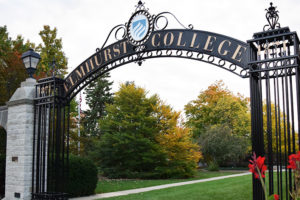
Drug experts say that until fairly recently, there were a number of reasons why suburban teenagers didn’t use heroin: It was difficult to obtain, relatively expensive, and required a needle to shoot it.
Today’s heroin has none of those barriers and at the same time is more potent, leading to an “epidemic” of young people trying it, quickly becoming addicted, and risking their lives for it.
On Tuesday, September 24, Elmhurst College will bring together a group of experts and advocates from law enforcement, education and addiction treatment to discuss heroin use in the suburbs and what can be done to combat it.
Heroin Highway: A Panel Discussion will begin at 7:00 p.m. in the Founders Lounge of the Frick Center. This event is free and open to the public.
Moderating the event is Illinois State Sen. Matt Murphy (R-Palatine), who has given several presentations about heroin use in the suburbs, particularly about the Heroin Highway, the stretch of Interstate Highway 290 that carries heroin between Chicago’s West Side and the western, northwestern and southwestern suburbs. Murphy also serves as co-chairman of the Northwest Suburban Alliance on Domestic Violence and on the executive boards for Journeys from PADS to HOPE, Preservation of Human Dignity, and Women in Need Growing Stronger.
About the panelists:
Robert Berlin has served as the DuPage County state’s attorney since 2010. A career prosecutor, Berlin began his career in 1987 as an assistant state’s attorney in Cook County, and has also served in the Kane County State’s Attorney’s Office and as deputy chief of the DuPage County State’s Attorney Office’s Juvenile Division. He is a frequent lecturer on a variety of criminal justice issues and has participated in numerous heroin education forums throughout DuPage County.
Kathleen Burke is CEO of the Robert Crown Center for Health Education, the nation’s first health education center. Since joining the Center in 2005, Burke has helped it to become an important community resource for youth and the adults who influence them. Over the past three years, Burke has stewarded an intensive collaborative effort to stop the increasing number of heroin deaths among youth.
Dan Lustig is vice president of Haymarket Center, whose mission is to aid people with chemical dependency in their recovery by providing a continuum of optimal professional care that is responsive to the identified needs of the community. Lustig has more than 20 years of experience in the field of addictions, and sits on numerous committees evaluating methamphetamine and its clinical interventions statewide.